This week, we’ve got two different federal court rulings on Second Amendment challenges to the federal felon-in-possession gun ban. Both come from non-violent offenders. Although, one of their crimes is probably more dangerous than the other.
In the Fifth Circuit, a man convicted of felonies stemming from a serious reckless driving incident lost his bid to regain his gun rights. A Second Circuit panel went even further. It found a man convicted of bank fraud couldn’t get his rights back either, but that was because no felons should be able to own guns since Congress’s categorical ban is constitutional.
Contributing Writer Jake Fogleman looks at how the Department of Justice has approached guns thus far and explains the apparent dichotomy between how it treats state and federal gun laws. He also explores the pullback of major banks from their post-Parkland gun policies. Both are member-exclusive pieces.
ATF agents were recently spotted masked up at a recent joint immigration raid in Minneapolis, but the agency tells The Reload it isn’t standard or part of any new operating procedure.
Meanwhile, Pennsylvania just restored gun-carry reciprocity with Virginia several years after the current governor killed the previous deal.
Plus, SCOTUSblog’s new editor Zach Shemtob explains the Court’s most recent big gun cases on the podcast. And we’ve got a bunch of interesting stories from outside The Reload down in the links, including one on the Court’s latest rejection of a Second Amendment case.
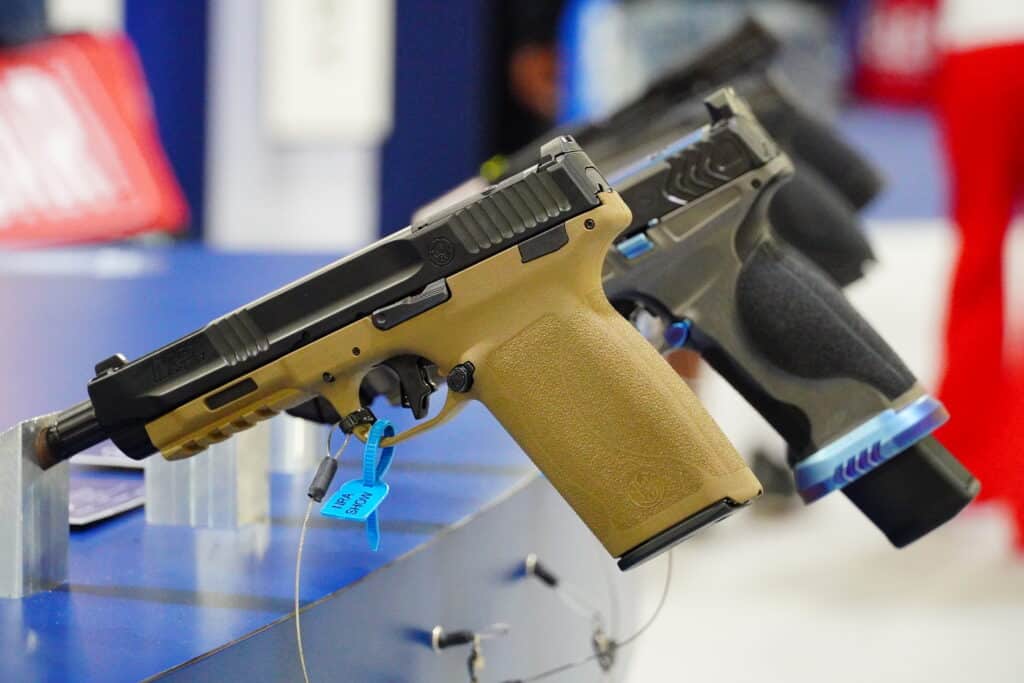
Second Circuit Upholds Gun Ban for All Felons, Including Non-Violent Offenders
By Jake Fogleman
The government can permanently disarm someone with prior convictions for financial felonies, a federal appeals court has ruled.
On Monday, a three-judge panel for the Second Circuit Court of Appeals unanimously rejected a New York man’s as-applied challenge to restore his Second Amendment rights despite a pair of decade-old bank and tax fraud convictions. Though the plaintiff argued that the federal felon-in-possession ban should not apply to someone with only non-violent offenses, the panel ruled that the Second Amendment allows Congress to categorically ban all felons from having guns–relying largely on discriminatory historical laws that barred blacks, Catholics, and native Americans from owning firearms.
“Because legislatures at or near the Founding had the authority to pass laws disarming large classes of people based on status alone, we conclude that the Second Amendment does not bar Congress from passing laws that disarm convicted felons, regardless of whether the crime of conviction is nonviolent,” Judge Gerard Lynch wrote in Zherka v. Bondi.
Click here to continue reading.
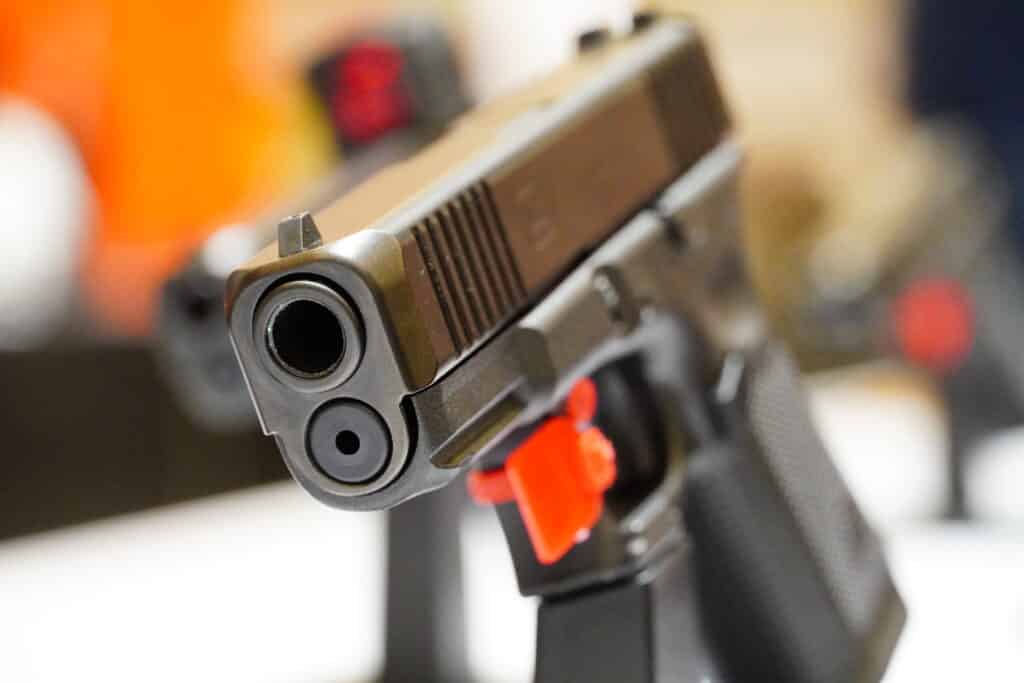
Fifth Circuit Finds Reckless Driver Too Dangerous to Own Guns
By Benjamin Owen
The Fifth Circuit Court of Appeals has upheld the ban on firearm possession for a felon who was at fault in a reckless driving incident.
On Wednesday, a unanimous three-judge panel tossed Joseph Lee Betancourt’s Second Amendment challenge to the federal felon gun ban. They rejected his argument that his conviction shouldn’t lead to disarmament because he didn’t intentionally harm those injured in the car accident he caused. Instead, the panel found his acts showed he is a danger to society, and the government can bar him from owning guns.
“The details of Betancourt’s aggravated assault convictions show that his Second Amendment challenge must fail,” Judge Catharina Haynes wrote in US v. Betancourt. “As described above, Betancourt disregarded a flashing red light while driving at his vehicle’s maximum speed, 107 miles per hour, causing a major crash and serious injuries to two people. He accordingly ‘poses a threat to public safety.’”
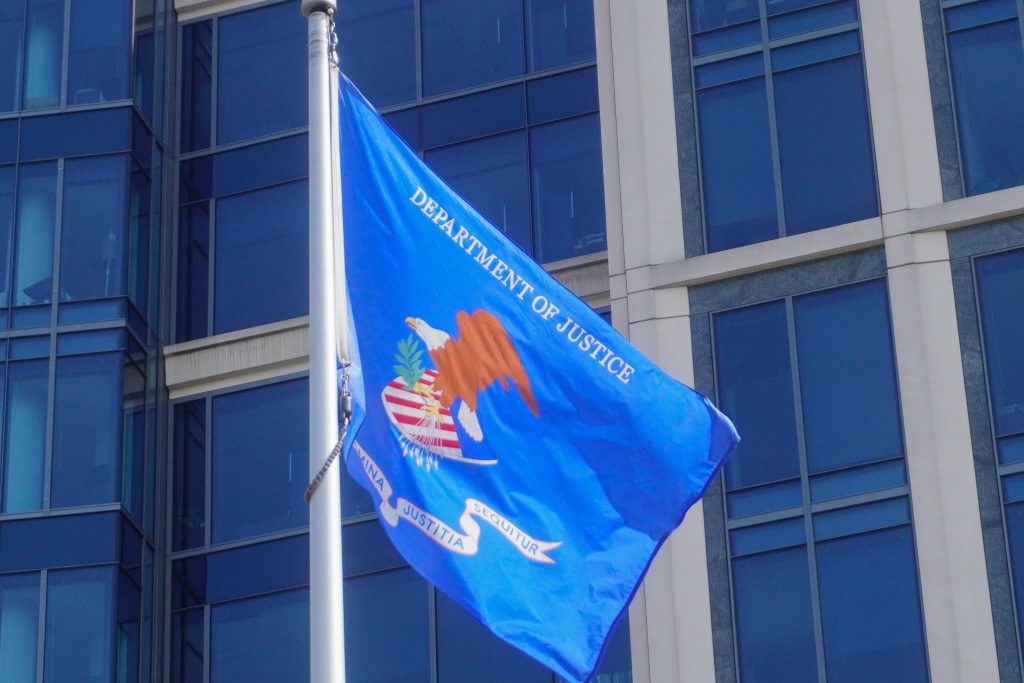
Analysis: Trump DOJ Hawkish on State Gun Laws, Dovish on Federal Gun Control [Member Exclusive]
By Jake Fogleman
More than four months have passed since President Donald Trump ordered the Department of Justice (DOJ) to take a pro-Second Amendment stance in ongoing legal cases and other controversies. A clear pattern has emerged as to what that looks like in practice.
Trump’s February order, dubbed “Protecting Second Amendment Rights“, began with more of a whimper than a bang as its original 30-day deadline for execution was quickly bypassed with little to show for it in terms of concrete DOJ activity. Since that early window, however, the effort has shown signs of life that gun-rights advocates might take encouragement from.
In late March, the DOJ launched a formal “pattern or practice” investigation into the Los Angeles County Sheriff’s Department and its slow walking of concealed handgun license applications. Around the same time, Trump ordered the creation of a new task force comprised of numerous DOJ personnel designed in part to “increase the speed and lower the cost of processing concealed carry license requests in the District of Columbia.”
Then, in early May, the department took the unusual step of asking the Supreme Court to take up a Second Amendment case to which the federal government isn’t a party. It requested that the justices strike down Hawaii’s ban on carrying guns on publicly accessible private property as unconstitutional in a challenge filed by gun-rights advocates. Finally, Attorney General Pam Bondi earlier this month sent a letter to the Pennsylvania Attorney General and president of the state’s sheriffs association arguing that some of the local sheriffs’ refusal to issue non-resident carry permits violates the Second Amendment and warning them that the practice could lead the DOJ to formally intervene.
Overall, the activity suggests that the Trump DOJ has the desire and will to aggressively police states and localities, particularly on the issue of gun carry, under its new “pro-Second Amendment” posture. However, this new DOJ hawkishness on local gun policy also belies the way the agency has continued to take the opposite tack in matters that affect the gun laws that it’s meant to enforce.
If you’re a Reload Member, click here to read more. If not, join today for exclusive access!
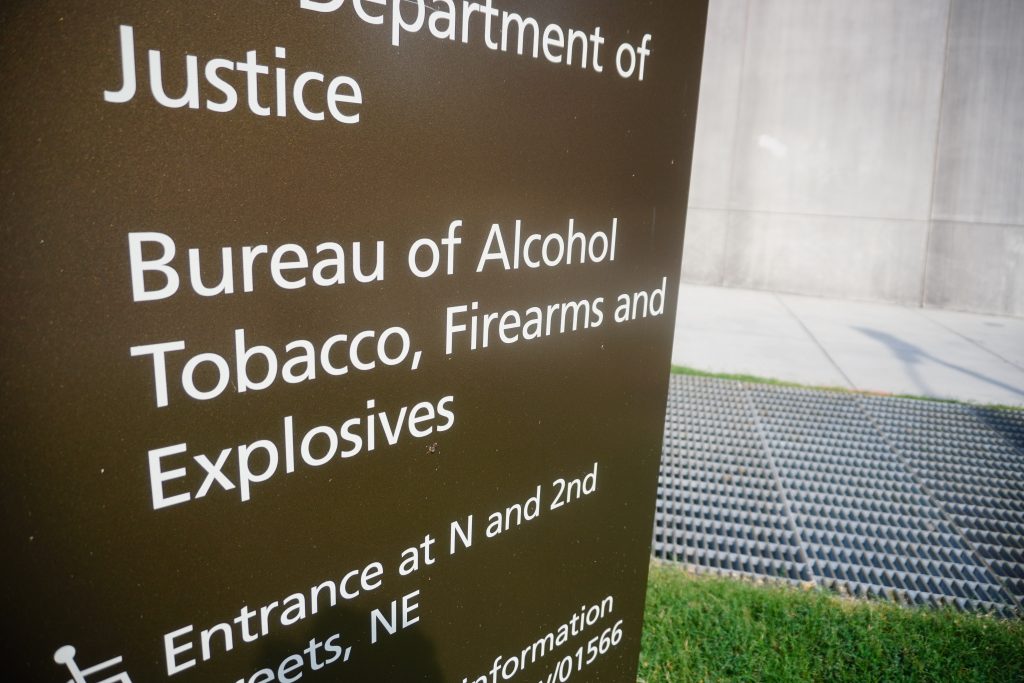
ATF Says Agents Masked in Minneapolis Raid Due to Gas, Not to Shield Identities
By Stephen Gutowski
Bureau of Alcohol, Tobacco, Firearms, and Explosives (ATF) agents donning masks is not a standard or new operating procedure, despite it happening at a recent raid in Minneapolis, Minnesota.
That’s what the agency told The Reload when asked about the incident. The ATF said agents were not attempting to conceal their identities with the masks, but rather improvising a way to protect themselves from chemical irritants deployed after a crowd gathered to protest their presence. It claimed the masking is not typical, but also not against the law or prodical.
“ATF agents wore masks during the Minneapolis operation due to chemical agents being deployed and to protect themselves after members of the crowd spit on them,” Tonya Keebaugh, an ATF spokesperson, told The Reload. “ATF does not typically operate in crowd-control environments, and agents deployed the PPE they had available in response to the evolving situation. While not standard, agents are authorized to use personal protective equipment when safety conditions warrant it.”
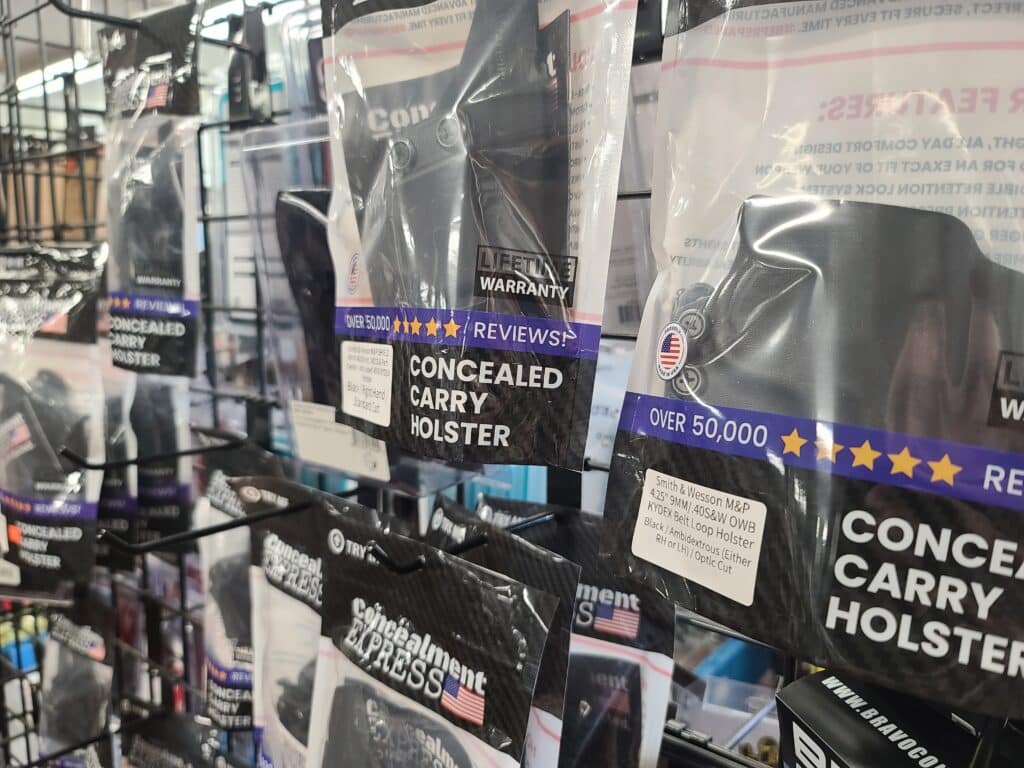
Pennsylvania Reverses Course, Agrees to Honor Virginia Concealed Carry Permits
By Benjamin Owen
Pennsylvania Attorney General Dave Sunday (R.) has restored a concealed carry reciprocity agreement with Virginia, allowing gun owners with valid permits to carry in both states.
On Wednesday, AG Sunday announced the move. He said his office had conducted a review that found there was no conflict between the two states’ gun-carry laws. He concluded Virginia permit holders should be able to lawfully carry in Pennsylvania without having to obtain a local carry permit.
“Shortly after taking office, I asked my staff to review opportunities to maximize reciprocity agreements with willing states, and ensure all existing and future agreements protect and respect standing law and constitutional rights,” Sunday said in a statement. “Our research of law in both states revealed nothing conflicting that would disallow permit holders to carry in both states.”
Click here to read the full story.
Podcast: SCOTUSblog’s Zach Shemtob on the Court’s New Gun Decisions
By Stephen Gutowski
This week, the Supreme Court cleared its slate of gun cases.
It made three substantial moves along the way. First, it finally revealed what it would do with long-languishing cases against Rhode Island’s magazine ban and Maryland’s AR-15 ban. Then, it decided, unanimously, whether Mexico could sue Smith and Wesson over cartel violence.
To break it all down, we have the new editor of one of the premier Supreme Court publications. Zach Shemtob of SCOTUSblog joins the show to give his perspective on what the Court decided and what it means for future cases.
You can listen to the show on your favorite podcasting app or by clicking here. Video of the show is available on our YouTube channel.
Plus, Contributing writer Jake Fogleman and I discuss the big news out of the Supreme Court this week before breaking down Citigroup’s walk back of its post-Parkland gun business restrictions. We also talk about the Department of Justice’s ongoing efforts to defend gun carry among the states, this time targeting Pennsylvania sheriffs who refuse to issue non-resident carry permits. Finally, we discuss the latest monthly gun sales numbers and wrap up with some of the biggest stories from outside The Reload.
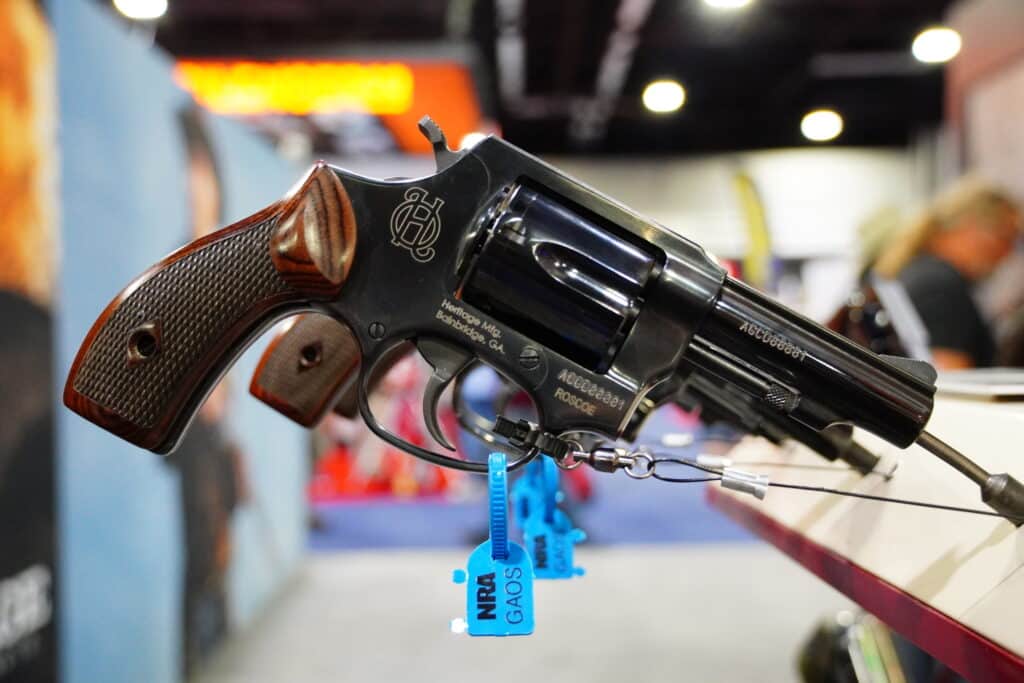
Analysis: The Big Banks Abandon Post-Parkland Gun Policies [Member Exclusive]
By Jake Fogleman
After years of being on the defensive, gun-rights advocates have successfully turned back the bulk of corporate gun-control policies.
This week saw them notch their most prominent victory to date. Citigroup on Tuesday announced it was ending its policy of severely limiting its business relationships with the firearms industry. The bank previously restricted its services to businesses that sell bump stocks, “high-capacity” magazines, or firearms to adults under the age of 21.
“We will no longer have a specific policy as it relates to firearms,” Ed Skyler, Citigroup’s Executive Vice President of Enterprise Services and Public Affairs, wrote in a post explaining the policy change.
That announcement came on the heels of a similar about-face from Bank of America, which recently rolled back its policy of refusing to do business with companies that manufacture or sell what it considers “military-style firearms.” As a result, two of the three largest banks in the country, in short succession, have now announced their intention to resume normal relations with lawful firearm businesses after a seven-year hiatus.
It’s an abrupt shift that can largely be explained by gun-rights activists learning to take a page from their political opponents’ playbooks when it comes to corporate pressure.
If you’re a Reload Member, click here to read the rest. If not, buy a membership for exclusive access to this and hundreds of other stories!
Outside The Reload
Supreme Court Keeps D.C. Magazine Ban In Place | Bearing Arms | By Cam Edwards
Glock ban bill passes California State Assembly | ABC 10 | By Jackson Ellison
That’s it for this week in guns.
I’ll see you all next week.
Thanks,
Stephen Gutowski
Founder
The Reload






